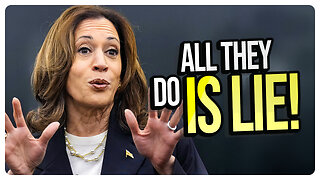Music from the American Civil War | Ep. 2 | Hidden History Jukebox Tunes!
The American Civil War witnessed a wealth of cultural production that praised both Union and Confederate causes. Music was enjoyed by participants close to the fighting and on the home–front, and numerous songs were produced specifically about the conflict, or adapted from contemporary tunes. Although "The Battle Hymn of the Republic" is today considered the preeminent Northern war song, Union soldiers were more likely to bestow that honor upon "The Battle Cry of Freedom." Composed in haste in a single day in response to President Abraham Lincoln's July 1862 call for 300,000 volunteers to fill the shrinking ranks of the Union Army, the song was first performed on July 24 and again on July 26 at a massive war rally.
A Massachusetts native, Root had shown remarkable musical abilities from an early age, mastering no fewer than thirteen instruments by the age of 12. Primarily a vocal instructor, Root eventually began composing, writing in the classical genre. He was a founding partner in the Chicago-based music publishing firm of Root and Cady. When the American Civil War broke out, Root began to write inspirational songs for the Union war effort. Although his earlier attempts at popular pieces had so embarrassed him that he signed them with the name "Wurzel" (German for "root") so as not to compromise his reputation as a serious composer, he now showed no hesitation in turning out song after song. Other works such as "Just Before the Battle, Mother" and "Tramp! Tramp! Tramp!" quickly established him as perhaps the most popular and certainly the most prolific of wartime composer/songwriters.
Public response to "The Battle Cry of Freedom" was overwhelming. When the sheet music was published that fall, fourteen printing presses working round the clock were unable to keep up with the demand for copies. Between 500,000 and 700,000 copies were produced. As with many Civil War songs, it was adapted to include contemporary references. For example, a verse was added in support of Lincoln’s presidential campaign in 1864. The song was also adopted by the Confederacy, with the lyrics changed to extol the freedom of the Southern states.
Root, George F. -- Composer
Myers, J. W. -- Vocalist -- Baritone Vocal
Root, George F. -- Lyricist
Recording Date
1901-05-21
Source: American Battlefield Trust, The British Library.
Source of original recording: Recorded Sound Section, Library of Congress.
FOR MORE HISTORY: https://www.instagram.com/hiddenhistorypod/
-
 LIVE
LIVE
WeAreChange
35 minutes agoU.S. Shooting Itself In The Foot... Geopolitical Realignment Happening!
879 watching -
 LIVE
LIVE
SilverFox
19 hours ago🔴LIVE - Skyrim (MODDED 2K ULTRA GRAPHICS, 120 FPS)
1,368 watching -
 25:39
25:39
Rethinking the Dollar
7 hours agoUnrealized Gains Tax: How It Could Affect You w/ Paul Stone
535 -
 1:55:02
1:55:02
Lee Camp
4 hours agoLIVE: AOC Trashes Jill Stein / Uhuru on Trial / Bill Maher Garbage
17.8K -
 42:36
42:36
Stephen Gardner
3 hours ago🔴JUST IN: Trump's Dire Warning! RFK Jr. DEVASTATES Kamala's Polls | Jimmy Dore
21.3K109 -
 1:36:37
1:36:37
The Quartering
6 hours agoKamala Harris PANICS, X & VPN's BANNED $9,000 Per Day Fines, Trump Goes On Attack Mode
59.6K63 -
 1:48:54
1:48:54
Nerdrotic
6 hours agoRings of Power COPE - The Nerdrotic Nooner 424
34.6K24 -
 1:28:18
1:28:18
vivafrei
6 hours agoDemocrats: ALL THEY DO IT LIE! From Arlington to Trump the Dictator to Food Health! Viva Frei Live
54.4K98 -
 1:51:52
1:51:52
The Dilley Show
6 hours agoLabor Day Special! Kamala Attacks GoldStar Families! w/Author Brenden Dilley 09/02/2024
38.8K30 -
 1:09:54
1:09:54
Russell Brand
7 hours ago"ORWELLIAN NIGHTMARE!" Elon FIGHTS Brazil's X Ban As Global Free Speech CRACKDOWN Continues - SF443
146K262